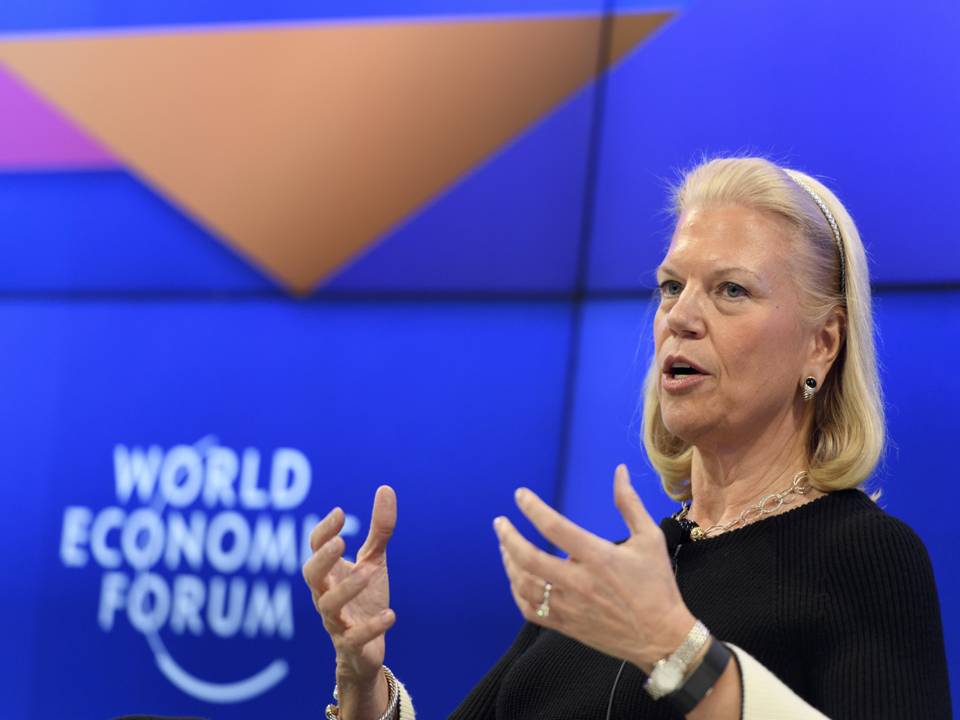“As business opportunities for artificial intelligence multiply, how can industry leaders design the principles and technical standards into their products that benefit society as a whole?”
It is more evident than ever that automated machines and robots are rapidly replacing human workers.
In Europe, concerns about the loss of good-paying jobs to automation is so strong that the idea of a universal basic income is gaining traction. France, for one example, could lose three million jobs by 2025 due to automation, a former education minister campaigning for the French presidency has argued.
The topic has been front of mind this week for participants at the World Economic Forum’s annual summit in Davos, Switzerland.
We live in a fast-paced and interconnected world where breakthrough technologies, demographic shifts and political transformations have far-reaching societal and economic consequences. More than ever, leaders need to share insights and innovations on how to best navigate the future.
The World Economic Forum Annual Meeting in Davos-Klosters remains the foremost creative force for engaging the world’s top leaders in collaborative activities to shape the global, regional and industry agendas at the beginning of each year. For over four decades, the World Economic Forum’s mission – improving the state of the world – has driven the design and development of the Annual Meeting programme.
The World Economic Forum (WEF) is a Swiss nonprofit foundation, based in Cologny, Geneva. Recognized by the Swiss authorities as an international body, its mission is cited as “committed to improving the state of the world by engaging business, political, academic, and other leaders of society to shape global, regional, and industry agendas”.
The Forum is best known for its annual meeting at the end of January in Davos, a mountain resort in Graubünden, in the eastern Alps region of Switzerland. The meeting brings together some 2,500 top business leaders, international political leaders, economists, and journalists for up to four days to discuss the most pressing issues facing the world. Often this location alone is used to identify meetings, participation, and participants with such phrases as, “a Davos panel” and “a Davos Man”.
At the World Economic Forum, IBM CEO Ginni Rometty shared some of the important lessons her company has learned by working with businesses to implement AI.
1. It’s not computers vs. workers.
There’s a lot of fear that AI will elimination jobs, Rometty said. It’s possible that some professions will be wholly replaced by automation, but at most of IBM’s business partners “it will not be man or machine,” she said. The purpose of the technology is instead to augment and supplement what humans do. That needs to be clear.
2. Industry domaine really matters.
Every institution has its own data to contribute to AI, Rometty said, but to truly unlock its value it must be combined with industry data. “These systems will be most effective when they’re trained with domain knowledge and in an industry context,” she said. IBM, for its part, has focused on healthcare.
3. Know your business model.
Any company—new or old—has accumulated assets in the form of data, Rometty said. Data is a competitive advantage, “so we believe strongly as a business, that the insights you get from your data belong to you and that applies also to how these systems were trained,” she said.
Joichi Ito, director of the media lab at the Massachusetts Institute of Technology, pushed IBM and Microsoft, whose CEO Satya Nadella appeared on the same WEF panel with Rometty, to go a bit further and ensure that the people who create AI technology reflect those who will actually use it. He referenced a black researcher in his lab who realized some facial recognition technology didn’t pick up darker faces. “[O] ne of the risks that we have in the lack of diversity among engineers is that it’s not intuitive to the kind of questions you should be asking, even if you have design guidelines,” he said.
http://fortune.com/2017


